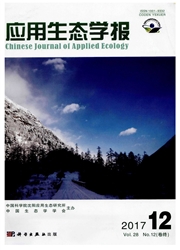

 中文摘要:
中文摘要:
浮游植物分类方法是揭示浮游植物群落演替规律、开展淡水生态研究的工作基础和重要工具.林氏分类法和分子鉴定法在生态学应用上存在的不足促进了浮游植物功能类群分类法的发展.功能类群分类法是一种以浮游植物个体生态学为依据的生态分类法.本文概述了浮游植物功能类群(functionalgroup,FG)、生态功能类群(morpho-functionalgroup,MFG)和形态功能类群(morphology.basedfunctionalgroup,MBFG)等浮游植物分类方法的理论基础和分类依据,分析比较了这3种分类方法的优势与不足,认为FG是目前应用于水生生态学研究和水环境生物评价中相对适用的浮游植物分类方法.介绍了功能类群分类法在国内外淡水浮游植物生态学研究中的应用现状,简述了以FG为基础提出的Q指数法和QR指数法两种水质评价法的评价标准及存在的不足.
 英文摘要:
英文摘要:
Appropriate schemes for classifi important tools for revealing phytoplanktoni cation of freshwater phytoplankton are prerequisites and c succession and studying freshwater ecosystems. An al- ternative approach, functional group of freshwater phytoplankton, has been proposed and developed due to the deficiencies of Linnaean and molecular identification in ecological applications. The functional group of phytoplankton is a classification scheme based on autoecology. In this study, the theoretical basis and classification criterion of functional group ( FG), morpho-functional group (MFG) and morphology-based functional group (MBFG) were summarized, as well as their merits and demerits. FG was considered as the optimal classification approach for the aquatic ecology re- search and aquatic environment evaluation. The application status of FG was introduced, with the evaluation standards and problems of two approaches to assess water quality on the basis of FG, in- dex methods of Q and QR, being briefly discussed.
 同期刊论文项目
同期刊论文项目
 同项目期刊论文
同项目期刊论文
 期刊信息
期刊信息
